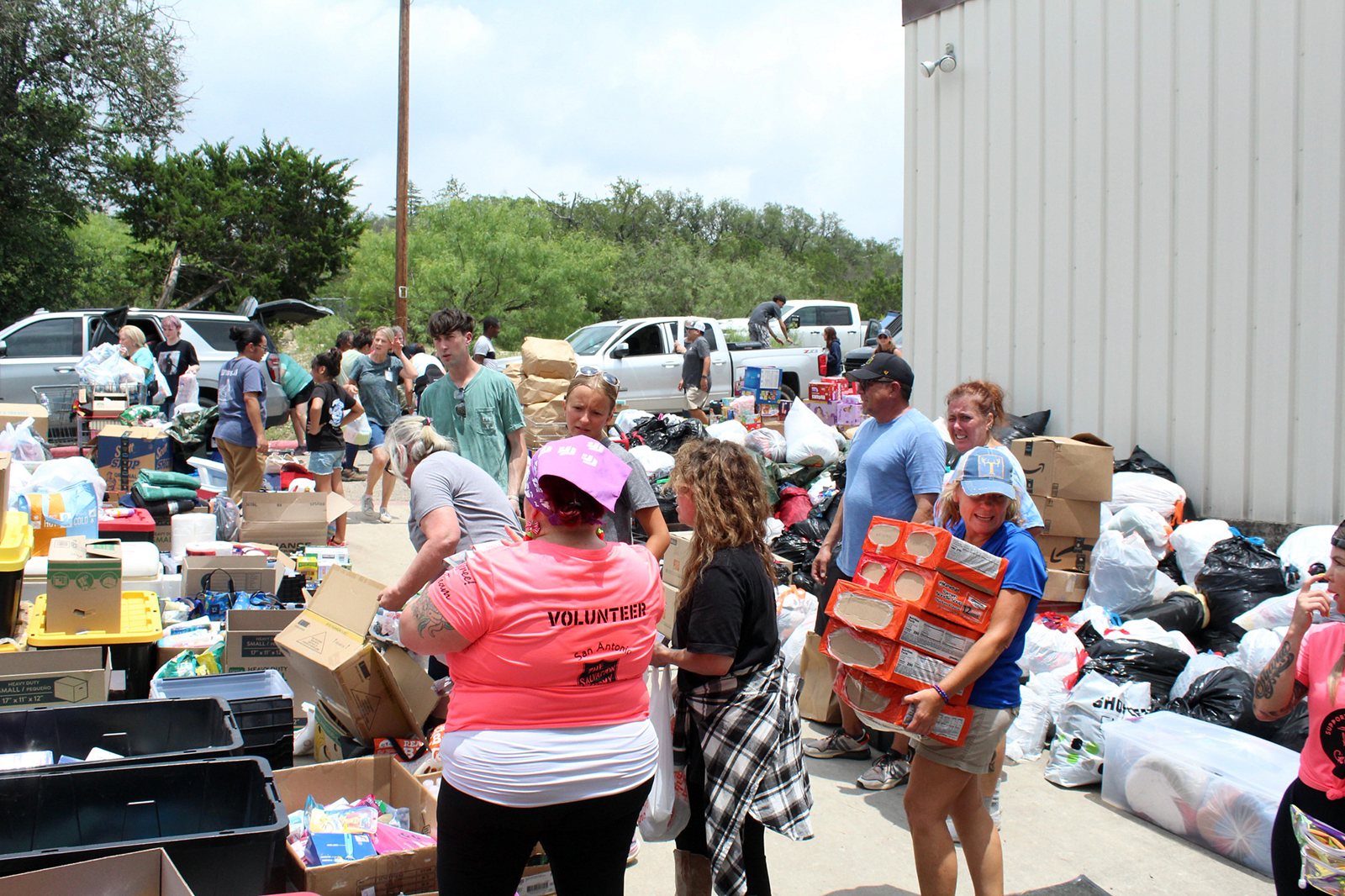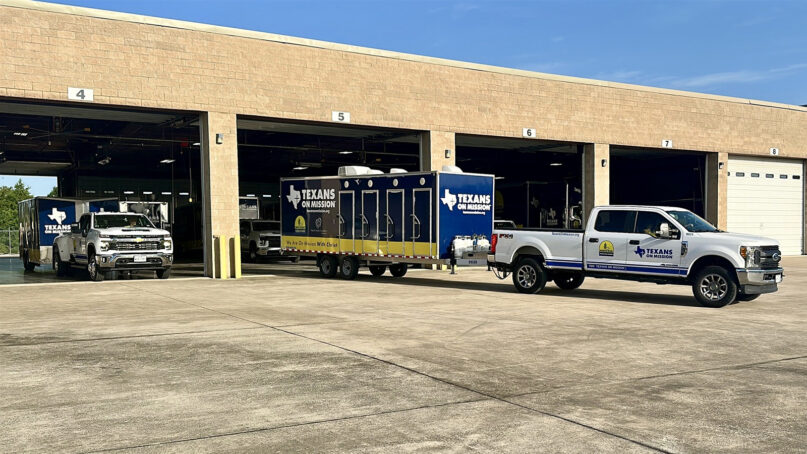
(RNS) — For the past week, Captain Jenifer Phillips, an emotional and spiritual care officer with the Salvation Army, has been working out of a basecamp in Kerrville, Texas, as part of a team of eight chaplains responding to the deadly flash floods.
The spiritual care officers are part of a larger Salvation Army response to the Hill Country floods. As of Thursday (July 10), they served close to 6,000 meals and about 34,000 cold drinks out of four mobile food pantries to disaster survivors, emergency responders and other relief workers. They also distributed 998 clean-up kits and more than 1,400 hygiene kits and led a drop off-site for donations.
The chaplains have also been listening to survivors’ stories, said Phillips, who is usually based in East Texas.
“We want to be able to talk with people, hear their stories and be able to provide support,” Phillips said in an interview from Texas.
She said most of that listening happens naturally while volunteers are handing out supplies or while people are eating meals. Phillips said folks want to talk through what they’ve experienced.
As a chaplain, Phillips said she doesn’t try to make sense of what happened but instead tries to be present and hear them. That’s part of providing emotional care — she said even those who aren’t religious need a human connection and a listening ear.

Salvation Army members and volunteers pray in the Kerrville community following deadly floods in the Texas Hill Country. (Photo courtesy The Salvation Army)
“In such moments of deep despair, there are not words,” she said. “We call it the ministry of presence. I think that being with people is the only thing we can do in these moments.”
As the immediate response to the disaster comes to an end, relief groups like the Salvation Army are making plans for long-term recovery efforts. Phillips said the best way to support both current and future needs is to give to disaster relief groups. She said groups like the Salvation Army are already running out of space to store some of the gift-in-kind donations they received.
Those monetary donations, she said, will go both to help survivors and fund rebuilding.
Aimee Freston, director of communications for Texans on Mission, a disaster relief ministry of the Baptist General Convention of Texas, said volunteers have started to arrive in the areas affected by the floods and will begin working on clean-up efforts. The group also has chaplains on site as well as assessors looking at damage and making plans for how to best deploy volunteers in the upcoming weeks.
Freston said getting clean-up teams on site has taken longer than usual because of the lengthy search-and-rescue process that followed the storms. As of July 10, at least 120 people died as a result of the floods that began on the Fourth of July holiday, and more than 170 were still missing, The Associated Press reported.

Texans on Mission volunteers deploy to San Angelo, Texas, to assist the Hill Country following deadly flooding. (Photo courtesy Texans on Mission)
The Southern Baptists of Texas Convention — one of two Lone Star State groups with ties to the Southern Baptist Convention — also has volunteers on site, distributing meals and starting clean-up efforts. Additional volunteer teams from out of state are expected to arrive in the weeks to come.
Phillips said she’s been struck by the scope of the disaster, passing by large oak trees with clothing and debris scattered in high branches or seeing metal wrapped around tree trunks, showing the force of the floodwaters. She has also seen how first responders, volunteers and local residents have pulled together.
“On the people side, we’ve seen people trying to love on each other,” she said. “Lots of tears, lots of prayers, lots of hugs — just trying to be there for one another.”
